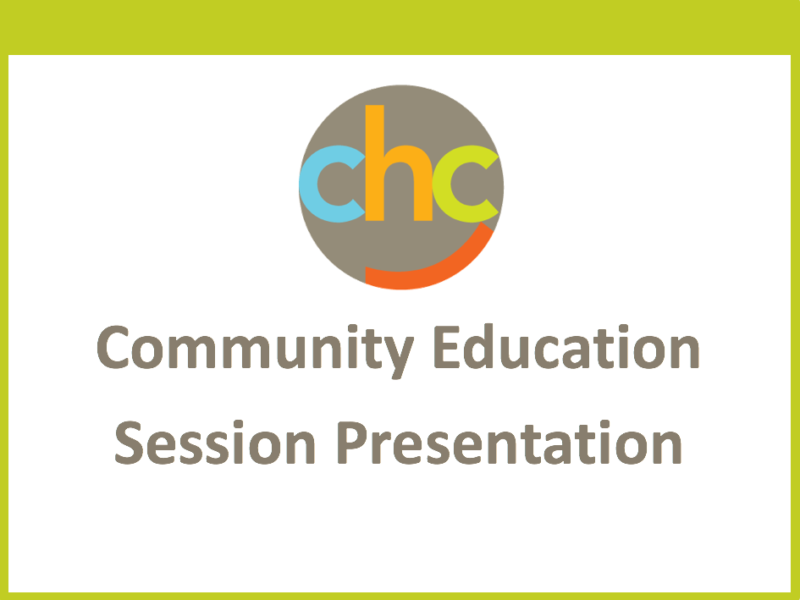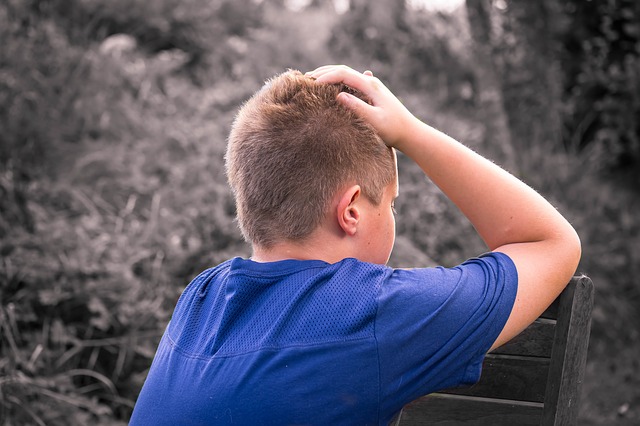
Seasonal Affective Disorder (SAD) is a type of depression that comes and goes with the seasons, typically starting in the late fall and early winter and going away during the spring and summer. It can affect adults, teens, and children. Read more >>
Request an Appointment
English: 650.688.3625
Medi-Cal: 650.688.3650

Seasonal Affective Disorder (SAD) is a type of depression that comes and goes with the seasons, typically starting in the late fall and early winter and going away during the spring and summer. It can affect adults, teens, and children. Read more >>

A Crisis Line That Calms with Texting and Data
Can algorithms be used to address more urgent social and individual problems, like how to build trust or provide effective care? Can algorithms be used to increase the love and kindness in the world? These are the sort of questions Read more >>

The Most Wonderful Time of the Year?
written by Liza Bennigson, Content Marketing Manager CHC It’s hard to escape it: Christmas tunes on every radio station, snowflake cups at Starbucks, pine trees atop every other SUV. “It’s the hap-happiest season of all,” right? Not necessarily. For many, Read more >>

How to Help Your Anxious Young Child [presentation]
How do you know what is typical and what is not? In this class led by David Arbulú, MA, Marriage & Family Therapist, learn the signs of anxiety in young children and some strategies to help your young child manage Read more >>

To Write Love on Her Arms [web resource]
To Write Love on Her Arms is a non-profit movement dedicated to presenting hope and finding help for people struggling with depression, addiction, self-injury, and suicide. TWLOHA exists to encourage, inform, inspire, and invest directly into treatment and recovery. Read more >>

Helping Teens Cope with Anxiety — Archbishop Mitty High School Session [presentation]
In this session at Archbishop Mitty High School, Annaleah Logan, PsyD. discusses the different forms of anxiety and their respective symptoms, the stressors that teens experience, causes of teen anxiety and depression, and coping strategies. Read more >>

Anxiety and Depression in Teens [presentation]
In this parent education session held at the German International School of Silicon Valley, CHC’s Tonia Chen, MA, LMFT and Christine Wang, EdM invite parents to step into the shoes of their teens to better understand the complexities of a Read more >>

Books That Can Help Children Manage Their Anxiety
Anxiety disorders in children are not uncommon; in fact, some studies indicate that as many as 1 in 8 children experience anxiety that impedes their social, personal and academic functioning. Read more >>

Educators Employ Strategies To Help Kids with Anxiety Return To School
The Anxiety and Depression Association of America estimates anxiety-based school refusal affects 2 to 5 percent of school-age children. It is often triggered when students are transitioning into middle or high school. Doctors say it should be treated with flexibility Read more >>

How to Help Children Cope with a Crisis
Here are ten tips Save the Children recommends for parents, teachers, grandparents and caregivers to provide comfort and understanding to children: Read more >>
English: 650.326.5530 | Español: 650.688.3650 | Fax: 650.688.3669
English: 650.326.5530
Español: 650.688.3650
Fax: 650.688.3669
English: 650.668.3625 | Español: 650.688.3650 | careteam@chconline.org
English: 650.668.3625
Español: 650.688.3650
careteam@chconline.org
© 2024 Children’s Health Council. All rights reserved.
CHC Palo Alto: 650 Clark Way, Palo Alto, CA 94304 | 650.326.5530
CHC South Bay: 2280 Kenwood Avenue, San Jose, CA 95128 | 408.831.7512
CHC Ravenswood: 1765 E Bayshore Rd, East Palo Alto, CA 94303 | 650.702.2487
CHC Palo Alto:
650 Clark Way, Palo Alto, CA 94304
650.326.5530
CHC South Bay:
2280 Kenwood Avenue, San Jose, CA 95128
408.831.7512
CHC Ravenswood:
1765 E Bayshore Rd, East Palo Alto, CA 94303
650.702.2487